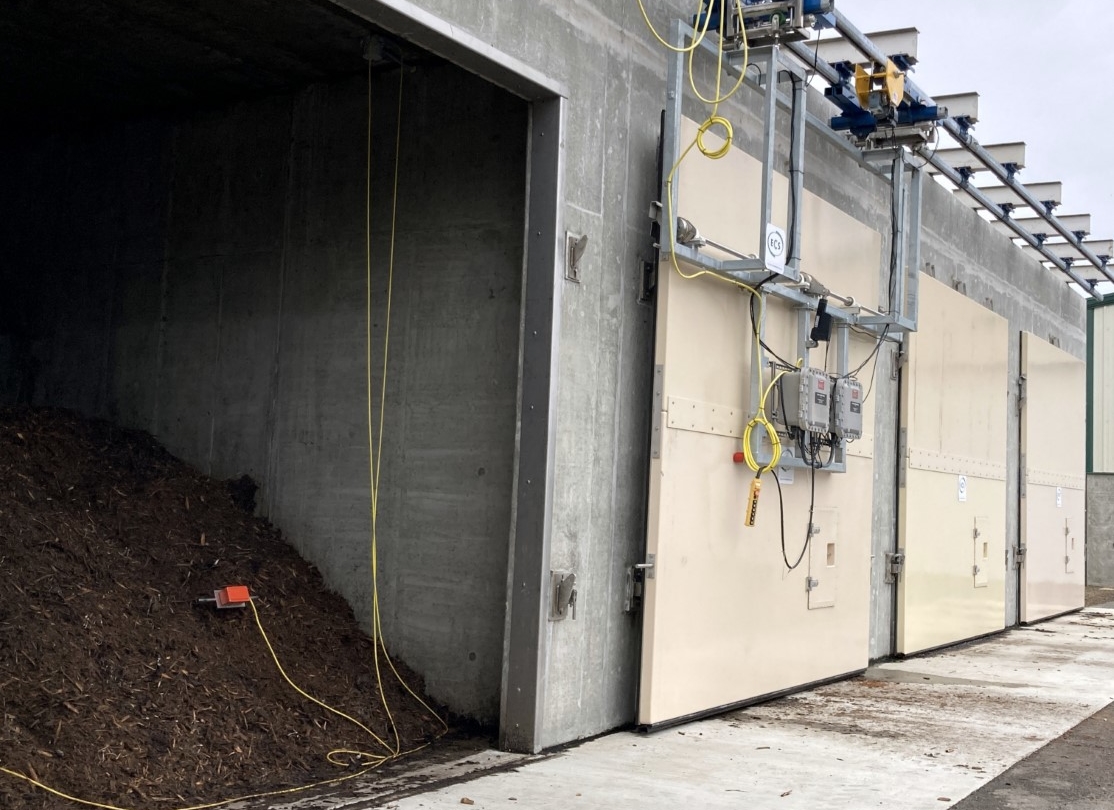
Capacity (TPY)
3,600
The City of Long Beach wanted a durable solution for composting municipal biosolids from their wastewater treatment plant in the very wet, cool, and corrosive Pacific Coast environment. Previously, they land applied biosolids. With increasingly limited outlets for Class B biosolids, biosolids composting offered a robust method for producing a Class A compost that is readily useable in local horticultural applications. Some of the client’s project goals for their biosolids composting facility included:
We offered our tunnel type in-vessel system for primary composting, a roof covered aerated static pile (ASP) for secondary composting, and a four-auger feedstock mixer. This approach prioritized low odor composting. The scale-controlled mixer gently combines dewatered biosolids and groundwood to provide a BMP compliant raw mix. The ECS CompTrollerTM automated control and monitoring technology will maintain uniform and near-optimal conditions in the vessels to maximize biodegradation rates and minimize the creation of odors.
The sealed and insulated design of the concrete vessels eliminates weather effects and prevents fugitive emissions. The ECS low-friction aeration floors are designed to minimize fan-energy use and last for decades. The ECS 4m x 4m vessel door system provides an easy way to handle the doors and seal and insulate the front of the vessels. Exhaust air from the vessels is scrubbed through an ECS designed biofilter. The compost leaving the vessels will have achieved PFRP, be substantially stabilized, and have a very low potential to generate odor. It will then undergo weeks of low aeration rate secondary composting in an automatically controlled aerated static pile contained within a three-sided building. Both stages of composting and the biofilter are controlled, displayed, and tracked by the ECS CompTrollerTM.
We want to learn how to support your composting goals!
4220 24th Avenue West
Seattle, Washington 98199
Tel: (206) 634-2625
Fax: (206) 634-1309